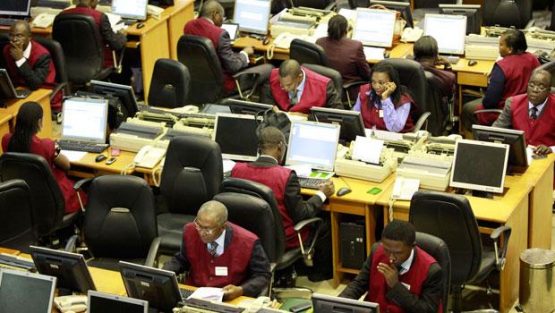The effects of fiscal and monetary policies on the Nigerian equity market have raised concerns among stakeholders, despite the fact that it has ended the last three years on a positive note. OLUWAKEMI ABIMBOLA writes about the need for appropriate policies among market players.
The Nigerian capital market ended 2022 on a high note, defying the trend of declining in the year before an election year. Last year, the market experienced growth of 19.98%. And as of Tuesday, May 30, it has increased by 8.76% this year.
The high involvement of foreign investors, who frequently left the market during the general election in Nigeria out of concern for the security of their investments, has been attributed by analysts to the trend of elections having a negative impact on the market.
Olatunde Amolegbe, managing director and chief executive officer of Arthur Stevens Asset Management Limited, commented on the fad, saying, “That was what we saw in 2015 and 2019.” You are aware of the general public’s lack of interest in investing during election seasons due to concerns about violence and other election-related risks. Additionally, the majority of investors were foreign during the elections in 2015 and 2019, so the market’s decline during those elections was caused by the foreign investors’ trepidation and reduced market participation.
“However, given that foreign investors have pulled out and local retail investors’ participation has significantly increased recently, things appear to have changed a little bit. What you witnessed in 2022 was an environment in which local retail investors had increased faith in the nation. The flight to safety that you observed during the previous two elections is not occurring now. because local investors—mostly Nigerians—are already present.

On February 27, the first trading day following the country’s presidential election, the market capitalization reached N30 trillion thanks to domestic investors’ increased involvement in the capital market and their apparent confidence.
However, after listed companies released results and investors reacted, that upswing was not maintained in the ensuing weeks. Market sentiment is mixed, with pockets of buy interest across fundamentally sound stocks and bearish sentiments resulting from an increase in yields in the fixed income market. Despite the market’s dip, it has begun to recover.
One of the major grievances during the administration of the former president Muhammedu Buhari was the sharp decline in foreign investment in the market. Analysts have attributed this decline to government policies, including the volatility of the foreign exchange market, which made it challenging for foreign portfolio investors to repatriate their funds.
Lamido Yuguda, the director general of the Securities and Exchange Commission, is confident that President Bola Tinubu’s administration will stabilise the foreign exchange market.
He declared, “This is a temporary situation. We anticipate a significant improvement in the nation’s foreign exchange situation. There are numerous economic developments taking place in the nation right now that are actually laying the groundwork for a much more active foreign exchange.
David Adonri, Executive Vice Chairman of Highcap Securities Limited, laid out a simple two-point agenda for the new administration: revive the primary market and maintain a healthy secondary market.
“The capital market benefited from the misguided policies of this administration at the secondary market level,” the stockbroker claimed. The previous administration implemented numerous policies that increased the amount of money in the economy, and this money eventually found its way into the secondary market, buoying it for some of the administration. However, the primary market, which is the core of the capital market, did not benefit at all during this administration’s eight years in office. This competed with funds from the private sector, aside from acting as a platform for public borrowing.
“While we anticipate that the secondary market will continue to thrive under the new administration, the primary market needs to be reactivated in order to fulfil its economic function of capital formation.”
Adonri offered suggestions for how to accomplish this, saying that the secret was combating inflation with complementary fiscal and monetary policies.
The interaction between the yield on debt securities and the yield on equities is what drives the primary market. The state of the macro-economy has an impact on both the yield on debts and the yield on stocks.
“Inflation must be controlled in order for the yield on stocks to surpass the yield on debt at the point of transmission, which is the capital market. To allow interest rates to decrease in the economy, inflation must decrease to a lower single digit level. Financial assets will begin to flow to equities as a result of falling interest rates because they will cause debt yields to decline and reach a level where they are higher than equity yields.
“To bring down interest rates, the Federal Government must manage the economy using appropriate fiscal and monetary policies. Furthermore, it is important to avoid using fiscal policies to neutralise monetary policies as the previous administration did, which had the unintended consequence of having no effect on the fight against inflation. When both sets of policies were intended to be expansionary or contractionary simultaneously, monetary policies were contractionary while fiscal policies were expanding, according to Adonri.
Uche Uwaleke, a professor of capital markets at Nasarawa State University, asserts that President Tinubu’s administration needs to develop policies that will encourage businesses to list their shares on the capital market.
According to market capitalization to GDP, the Nigerian capital market is still relatively small, with fewer than 160 listed companies. The Tinubu administration can alter this perception by enticing more businesses to list on the Nigerian Exchange by offering financial incentives.
“Using a company income tax rate that favours listed companies is one way it can achieve this. Another choice is to offer new companies that list on the exchange a one- or two-year tax holiday.
Uwaleke, who is also the president of the Association of Capital Market Academics of Nigeria, added that the privatisation of state-owned businesses like the NNPC Ltd. through the Nigerian Exchange is another way the Buhari administration can increase activity in the capital market.
Perhaps the biggest hope for the new administration is that it will support the Nigerian Capital Market Master Plan’s implementation adequately through the Ministry of Finance (2021-2025). The new Securities and Investment Bill 2023, which has already been approved by the National Assembly, will be expected to be signed into law by the new president as a first step, he suggested.
The Tinubu administration and Chartered Institute of Stockbrokers President Oluwole Adeosun must prioritise the capital market.
The capital market must first be placed correctly within the context of the Nigerian economy. For the economy to grow as much as possible—or even optimally—the capital and money markets must be given equal attention. This is because the capital market serves as a barometer for measuring the health of the economy.
The second is to deal with the liquidity issue in trading. Get the CBN and banks to support participants in the capital markets more. The financial markets’ use of margin lending and trading needs to be reviewed.
Additionally, convince the pension funds to invest significantly more in stocks to establish the stability that will inspire other extremely wealthy people to make investments.
We anticipate a stable and uniform exchange rate, which will raise the level of foreign investors’ participation in our market, Oluwole said in response to the issue of divergent forex rates. We anticipate positive policy announcements and statements that will increase stakeholders’ confidence.
During a closing-gong ceremony last week, Temi Popoola, the CEO of the Nigerian Exchange Limited, noted that government policies have a significant impact on the market and expressed a willingness to collaborate with the Tinubu administration on such policies.
“How to get more corporations to list on the exchange has always been the age-old question for the capital market,” he declared. Listings on the market have been influenced by federal government policies. For instance, listings increased from 6 to 81 in the 1970s as a result of the then-administration’s indigenization policy.
“With the support of stakeholders like the Chartered Institute of Stockbrokers, Association of Securities Dealing Houses of Nigeria, Association of Issuing Houses of Nigeria, and others, we are looking to collaborate with the new administration to develop the right policies that promote listings in our market.”
According to Olaide Baanu, a research analyst at Atlas Portfolios Limited, the Tinubu administration’s sole responsibility is to entice more businesses to participate in the capital market.
According to him, “The new government needs to encourage and bring more companies to the market for more liquidity and transparent capital formation.”
Ayotunde Alabi, the country manager of Spektra Inc., urged the newly elected government to quickly shed the sensationalism surrounding its electoral victory and get to work.
He contends that greater investor confidence is required.
“You will see that the trends of the flow of foreign portfolio investors in the capital market are negative,” he said. The majority of these men have looked into leaving the nation.
“For instance, people are trading dual-listed stocks. Investor confidence is currently the first duty of any government towards the capital market. If it is my government, how can I be sure that it is taking the necessary steps to draw in foreign portfolio investors? Any policies that might impede the capital market ought to be abandoned.
Ayo Olubunmi, Head of Financial Institutions Ratings at Agusto & Co, urged the government to reconsider fuel subsidies in light of declining tax revenues and high debt levels.
“A sizable portion of our Eurobond matures next year,” he continued. What strategy do you want to employ? The FX issue is another crucial issue that needs to be addressed. Illiquidity has reached an unhealthy level. What regulations can be set up to guarantee that the repressed demand is actually satisfied? Everyone is aware that the FX face a significant challenge. The last few years have seen a failure of FX management strategies. The following query is, “How do you handle that?”



